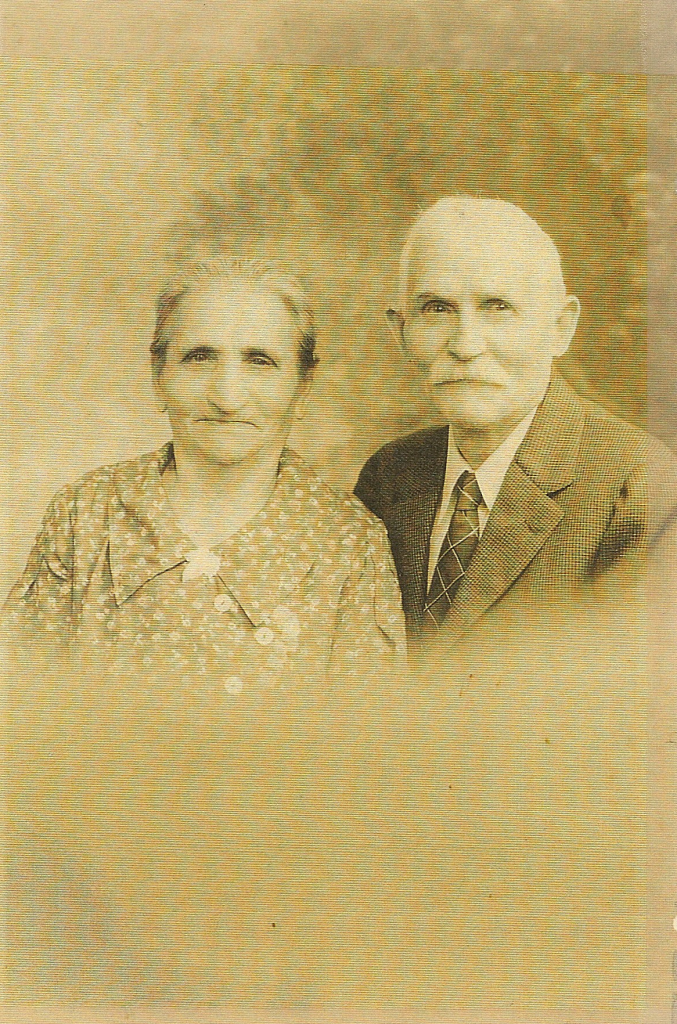This is an essay written in 1927 by John Klein, a Humboldt, Iowa high school student. His freshman English class was to interview and write about an older person in the community. The essays are collected at the Humboldt public library. Michael Lindemann is the subject of this essay and it includes an account of his ocean voyage to America aboard the Zeeland. He made the trip in November 1883 with the family of Conrad and Martha Schmidt. In 1887, Michael married their daughter, Elizabeth Schmidt. The Schmidts and Lindemanns settled first in the area of Dysart/Vinton, Iowa, and migrated northwest to the area of West Bend/Humboldt, Iowa beginning in the late 1880s.

MICHEAL LINDERMAN [sic “Michael Lindemann”]
Mr. Michael Linderman [sic “Lindemann”] was born in Machlas [sic “Machtlos”], Germany, March 15, 1860. When he reached the age of nine years, his parents passed away. At this period of his life, he moved to Essen, Germany, to live with his aunt. Essen was located in a community named Lreinplowinc [ed. probably a typo for “Reinprovinz”, meaning “Rein Province”, i.e. the “Province of Nordrhein-Westfalia”]. It was in this place that he ran a small truck farm outside the village of Essen.
Five years later, at the age of fourteen, he earned his first money. This he earned by picking rocks out of coal in the top of the mines. A little later in his life, he worked in small factories. At the age of sixteen, he worked in the mine itself. He stayed in the mines until he was twenty-four years of age.
When he was twenty-four, he decided to come to America. He went to Antwerp, Belgium, on the seventh day of November. On the same day, he boarded a ship of the Star Line and was on his way to America. There were about fifteen hundred more going to America. The first part of his trip went fine.
When the ship was about half way across, a large group of black clouds appeared in the sky. Immediately the captain ordered everyone below. On this day, November 18, 1883, a bad storm broke. At noon, everyone’s hair was standing on end. About this time a loud blast was heard, and a large part of the deck was blown and torn off. Now the worst part of the storm was over, but they were up to their knees in water. The next day, everything was clear, and one could lie at the side of the ship and touch the water. This was because part of the side of the ship had been torn off when the deck went. The next Sunday at two o’clock, everything was clear, and he landed in Philadelphia.
He waited in Philadelphia until eleven o’clock, and then got on a train and started for Iowa. He stopped at Vinton, Iowa at ten o’clock Tuesday.
The first year he was in Iowa, he husked corn. This was his first experience with corn. That winter he arrived, he did not earn a cent. The first money he earned when he came to America was from his uncle. This was because his uncle had to have his corn sorted. That winter, he earned one dollar, but did have board fee.
A little while later, he hired out for fifteen dollars a month, on a farm. He had never driven horses before, and it seemed very unusual. He was very sleepy all the time. This was because of the change. He had been used to working in dusty mines, and now he was working outside all of the time. After the fall harvest, he commenced work on the railroad for one dollar and ten cents a day.
In 1887 he was married to a very charming lady. He then decided to move away from Vinton. He then moved to Humboldt County. He had seventy-five acres of oats in Humboldt County. He paid out ten dollars for twine, ten dollars for the threshing bill, and received five dollars for the oats. The oats were infected by black rust, which caused a great deal of damage to the crop.
After the experience on that certain land, he decided to move again. This time he moved to Allen Steer’s farm, where he stayed for eight years. In 1837, he moved again. This time he moved to Terril Hill’s farm. At certain time he had seen Indians in the woods of Vinton before he had come to Humboldt County. When he came to Humboldt County he saw very few Indians.
Now occurred one of the happiest days of his life. He was able after thirteen years of hard work to pay two hundred dollars down on a place or farm of his own. So in 1900, he bought a place of his own, not very far from Humboldt. In 1919, he moved to town, where he still resides.–John Klein
